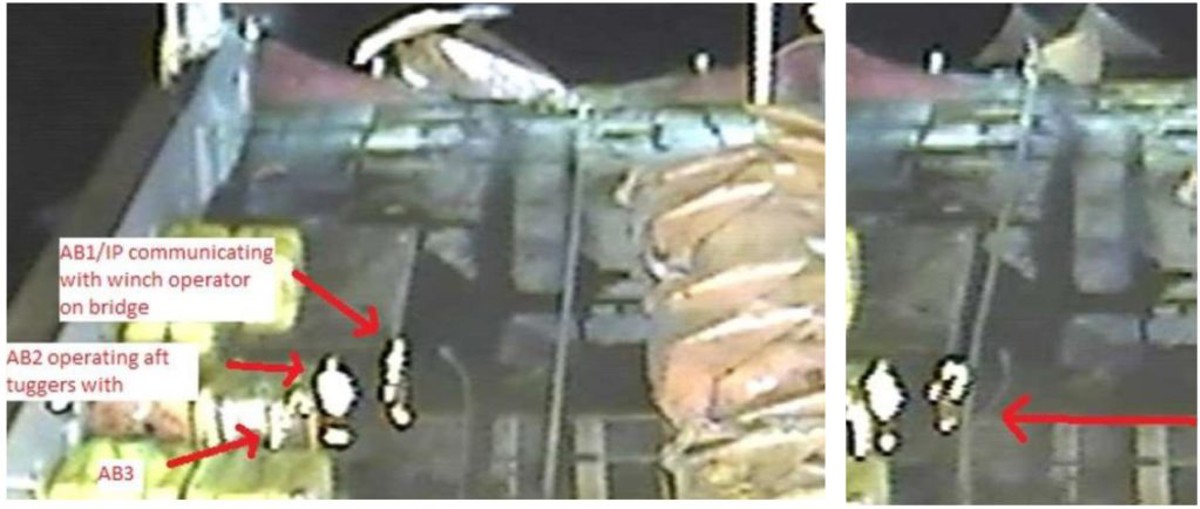LTI: person struck by uncontrolled swing in chain
- Safety Flash
- Published on 3 October 2022
- Generated on 12 February 2026
- IMCA SF 22/22
- 2 minute read
Jump to:
An anchor chain swung unexpectedly across the deck and hit a crew member, causing an injury to his foot resulting in an LTRI.
What happened?
Anchors were being pulled over the stern using aft tugger winches, controlled remotely by AB’s. At the same time, a winch operator on the bridge operated the winch that pulls in the chain.
When the anchor was pulled backwards, it started to lose its initial “heading”. When approaching the stern roller, the anchor was at a 45 degree angle to the vessel heading. This was not identified as a risk since all involved persons where at a safe distance from the anchor. As the weight of the anchor passed over the roller, the anchor straightened up as expected, but this also created an unexpected swing of the chain going forward to the main winch. The chain swung from the port side and approx. two metres to starboard and subsequently struck the left safety boot of one of the AB’s causing an injury.

What went wrong?
This specific anchor had a bridle with shackles attached underneath. So, when the anchor moved, it was “riding” on these shackles. This made it particularly difficult to “steer” the anchor. Instead of stopping and re-positioning the wrongly positioned anchor, the crew continued to pull it over the stern with a 45 degree angle; no-one anticipated the sudden and excessive movement of the anchor chain across the deck.
Lessons learnt
- Insufficient risk assessment and job preparation – much more thorough risk assessment and tool box talk, including discussion of safe positions, snap back zones, clear deck policies etc.
- There was poor situational awareness. Crew noticed the angle of the anchor but did not realize the positioning of the deck crew.
- When pulling an anchor over the stern, the anchor should be straightened up if it comes with an angle. This will reduce the likelihood of equipment damage and potentially dangerous situations for the deck crew. Vessel to review and improve operational routines.
- Emphasise the “Stop the Job” policy. Everyone has the right/responsibility to stop the job if they see that something is not how it should be.
Related Safety Flashes
-
IMCA SF 12/14
14 July 2014
-
IMCA SF 07/10
10 November 2010
IMCA Safety Flashes summarise key safety matters and incidents, allowing lessons to be more easily learnt for the benefit of the entire offshore industry.
The effectiveness of the IMCA Safety Flash system depends on the industry sharing information and so avoiding repeat incidents. Incidents are classified according to IOGP's Life Saving Rules.
All information is anonymised or sanitised, as appropriate, and warnings for graphic content included where possible.
IMCA makes every effort to ensure both the accuracy and reliability of the information shared, but is not be liable for any guidance and/or recommendation and/or statement herein contained.
The information contained in this document does not fulfil or replace any individual's or Member's legal, regulatory or other duties or obligations in respect of their operations. Individuals and Members remain solely responsible for the safe, lawful and proper conduct of their operations.
Share your safety incidents with IMCA online. Sign-up to receive Safety Flashes straight to your email.